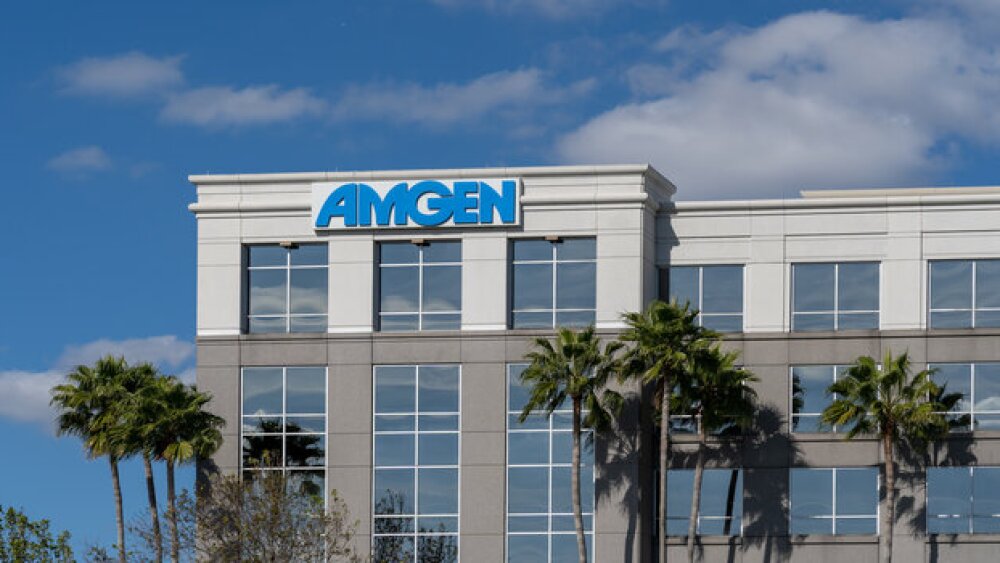Tarlatamab achieved a 40% objective response rate in small cell lung cancer patients with advanced disease who had failed two or more prior lines of treatment, the company announced Friday.
Pictured: Amgen office in Florida/iStock, JHVEPhoto
Amgen’s bispecific T-cell engager is showing promise for small cell lung cancer. The California biopharma company reported positive Phase II results for tarlatamab Friday, coinciding with a data presentation at the European Society for Medical Oncology Congress 2023 and publication in The New England Journal of Medicine.
The immunotherapy was tested in small cell lung cancer (SCLC) patients with advanced disease who had failed two or more prior lines of treatments. In 100 patients on the 10-mg dose of tarlatamab, an objective response rate of 40% was achieved, meeting the study’s primary endpoint. Median progression-free survival was just shy of five months while median overall survival was 14.3 months. No new safety signals were identified.
In August 2023, Amgen reported its initial data readout finding that the safety profile was “more favorable” compared to its Phase I study. In the 10-mg group, 49% experienced cytokine release syndrome. Other common side effects were fever, decreased appetite and dysgeusia—a persistent, foul taste in the mouth.
“Small cell lung cancer has represented one of the greatest challenges in cancer treatment, where there has been little progress against this deadly tumor type in decades,” David Reese, executive vice president of R&D at Amgen, said in a statement.
Patients at this stage of the disease, in third-line treatment with SCLC typically have response rates ranging between 14% and 21%, according to Amgen. Median overall survival is less than six months.
Tarlatamab works by bringing the patient’s T cells to the cancer by targeting CD3 on the immune cells and DLL3 on the cancer cells. Once the T cells have been recruited and activated, they are able to attack the cancer cells. DLL3 is a prime target for SCLC. As many as 94% of patients with SCLC express DLL3 on the cell surface, with minimal expression in healthy cells. The therapy is also being tested in neuroendocrine prostate cancer.
Boehringer Ingelheim has a T-cell engaging antibody in development for SCLC with the same receptor targets as tarlatamab. BI 764532 is currently in a Phase I dose-escalation trial. The antibody received Fast Track Designation from the FDA earlier this month.
Currently, bispecific T-cell engagers have been tested and approved in blood cancers and melanoma. Amgen’s results show the potential for the technology in a “common solid tumor,” the company said, adding they will discuss these “potentially registrational data” with regulators.
Kate Goodwin is a freelance life science writer based in Des Moines, Iowa. She can be reached at kate.goodwin@biospace.com and on LinkedIn.






